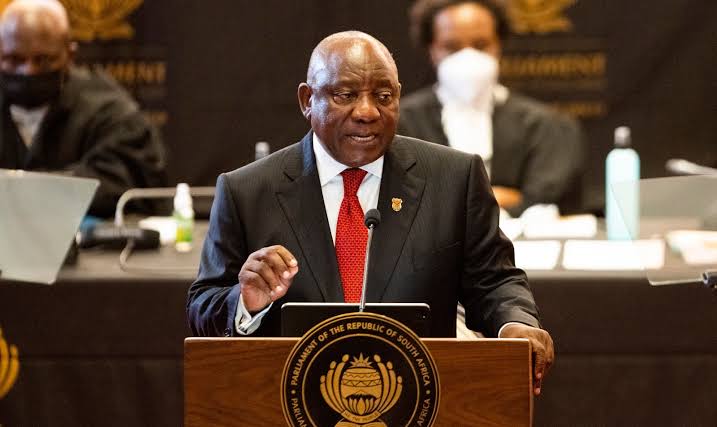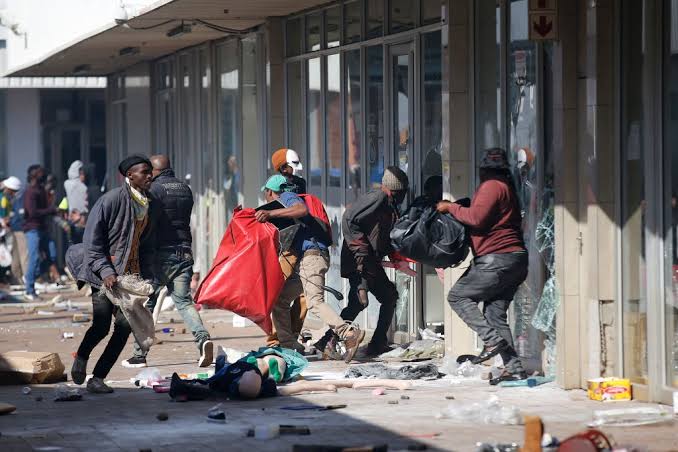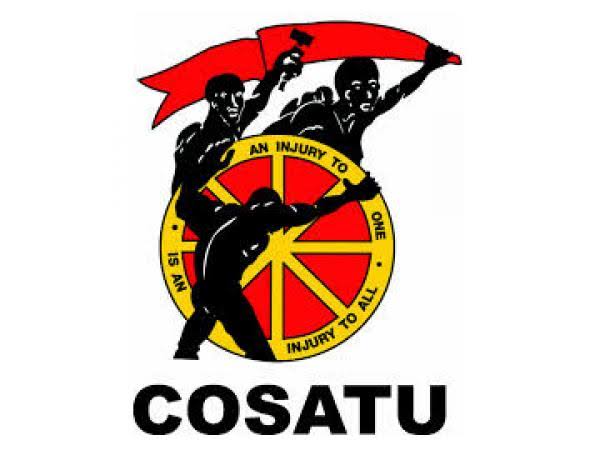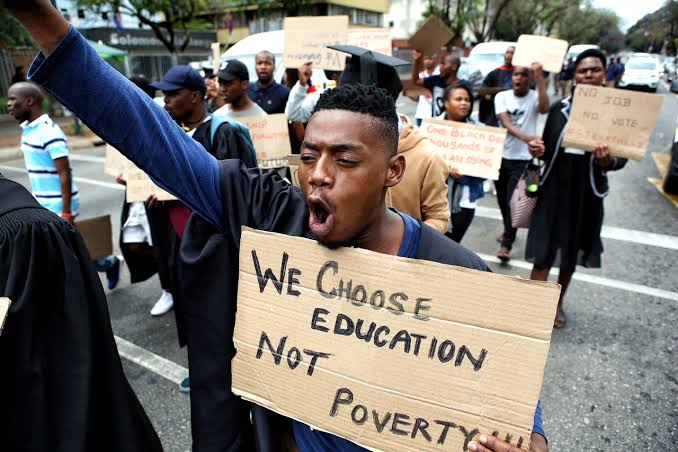
Oliver Meth
In a lengthy State of the Nation Address (SONA), South African President Cyril Ramaphosa focused on the reforms required to grow South Africa’s ailing economy, corruption, the July Unrest and social relief measures. This was his sixth SONA since he became president in 2018.
JULY UNREST
Seven months after last year’s July unrest in Gauteng and KwaZulu-Natal, security agencies are in for a shake-up – with “leadership changes” expected to be announced “soon”.
According to Ramaphosa, an expert panel, appointed to probe the reasons behind the unrest that killed more than 300 people, found the violence exposed poverty and inequality.
Police Minister Bheki Cele has come under fire, with many calling for his removal, following the July Unrest.
Cele responded and said he is a Cabinet minister and serves at the behest of the president.
“The President has spoken and said Cabinet takes collective responsibility and I agree with that,” says Cele.
He adds that calls for him to step down are premature and also threw his national police commission under the bus. Cele says some of the senior vacancies within law enforcement were vacant, which led to the disastrous response to the unrest because of Khehla Sitole.

STATE CAPTURE
President Ramaphosa also said the private sector will help investigate cases emanating from the State Capture Commission of Inquiry. He added that special court rolls were on the cards to deal with rampant corruption speedily.
He told MPs he would respond to the commission’s report by the end of June.
SOCIAL RELIEF GRANT EXTENDED TO MARCH 2023
Meanwhile, President Ramaphosa has announced that the government’s Social Relief of Distress Grant will be extended by one year, meaning it will continue into March 2023.
The grant had been a critical buffer to millions of South Africans whose livelihoods were devastated by the impact of the ongoing Covid-19 pandemic.
The R350 (approximately $23) monthly disbursement has been met with a strong demand, highlighting the impact of the pandemic on poor South Africans in an already underperforming economy facing record unemployment levels and subdued growth.
Trade union, Cosatu, has welcomed the government’s extension of the R350 grant for the unemployed, saying it hoped it would lead to the introduction of the basic income grant.

“The federation welcomes the extension of the R350 SRD grant, and we believe it provides for a foundation for a basic income grant. This will provide badly needed relief to more than 10 million unemployed persons.“
“The Budget needs to enhance it and narrow its gap with the food poverty line. Its delivery needs to be shifted to electronic payments and linked to skills training programmes to help its 10 million recipients find and create jobs,” Sizwe Pamla, the spokesperson said.
BOOSTING AN AILING ECONOMY
President Ramaphosa announced that business leader Sipho Nkosi would head a team in the Presidency tasked with seeking out and eliminating red tape in government regulations that hamper business growth.
Ramaphosa stressed that the government’s role was not to create jobs, but to facilitate an environment in which business could serve this purpose.
Sasol chairperson Nkosi was previously CEO of Exxaro and president of what was then the Chamber of Mines of South Africa.
Ramaphosa also announced a sweeping review of economic policy and regulatory framework as part of the government’s efforts to implement structural reforms.
He said that the Independent Communications Authority of South Africa (Icasa) will be spearheading the rolling out of the spectrum to boost investment and create jobs.

Spectrum has been one of the major hurdles for investment in South Africa.
Delays in rolling out new spectrum auctions have been caused by fighting between Icasa and the department of communications.
Ramaphosa said these reforms should ensure there was an agreement that fundamental reforms were needed to revive economic growth, address the immediate unemployment crisis and to create conditions for long-lasting development.
The reforms would be accelerating far-reaching structural reforms to reduce the cost of doing business, increase competitiveness and heighten economic growth.





Recent Comments